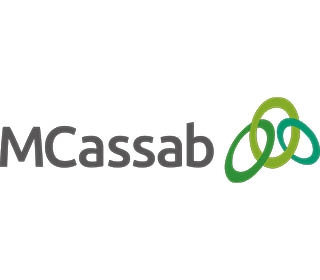Probiotics and Alzheimer’s: Personalised nutrition tipped to become crucial area of treatment research
Modulation of gut microbiota through personalised diet or probiotic intervention will increasingly become a key focus for treating brain disorders including Alzheimer’s Disease, Chinese academics have concluded in a new review.
They say a number of studies have highlighted the importance of the gut-brain axis - referring to the interplay between the gut microbiome and behaviour – for conditions such a depression diabetes, Parkinson’s disease and diabetes, adding that research around probiotics and Alzheimer’s is growing.
In November we reported how scientists believed they had shown for the first time that probiotics can improve cognitive function in humans , following a clinical trial with 60 elderly Alzheimer’s patients aged 60-95.
Writing in Frontiers in Ageing Neuroscience, researchers in Iran showed that a daily dose of probiotic Lactobacillus and Bifidobacterium bacteria taken over a period of 12 weeks is enough to yield a moderate but significant improvement in the score of elderly Alzheimer's patients on the Mini-Mental State Examination (MMSE) scale, a standard measure of cognitive impairment.
Now, in a review published in Science China, academics from the Chinese Academy of Sciences in Beijing assessed the suggestion that that “Alzheimer’s (AD) may begin in the gut”, and be closely related to the imbalance of gut microbiota.Major health concern
They pointed out that China’s population ageing was reaching an unprecedented level, with the 2010 nationwide census data showing that the elderly accounted for more than 10% of the total.
“To speculate according to the current incidence, China will have 8–12 million AD patients by 2050,” they wrote.
“The high incidence and morbidity of AD have become a major problem affecting human health, which aroused widespread concern in government and medical community and become a hotspot and difficulty in the field of neuroscience research.”
Although ageing, family history and susceptibility genes had been considered to be the most important factors for AD, the rapid increase in cases does not confirm to that equilibrium, they argue.
“We therefore, think that environmental factors are more important than genetic factors in AD,” they added.
“Recently, more and more studies suggested that human symbiotic microbes were very important environmental factors influencing host health. About 95% of the symbiotic microbes are located in the gut, which play a major role in human nutrition, digestion, neurotrophy, inflammation, growth, immunity and protecting against pathogen infections.”
“The gut microbiota also regulates brain function and behavior through microbiota-gut-brain axis,” they stated.
They cite a number of studies where diseases have been found to be related with the number and composition of gut microbiota, including obesity (Ley et al., 2006), diabetes (Qin et al., 2012), hypertension (Yang et al., 2015), liver cirrhosis (Qin et al., 2014), autism (Finegold et al., 2010), depression (Naseribafrouei et al., 2014) and Parkinson’s disease (Scheperjans et al., 2015.)
However, the research on AD and gut microbiota is just beginning, they said, but pointed to number of studies where probiotics appear to have a beneficial impact on the wider cognitive function of rats and mice.
“Liang et al. found that probiotic Lactobacillus helveticus NS8 could significantly improve cognitive function disorders caused by chronic restraint stress in rats (Liang et al., 2015)…administration of Lactobacillus helveticus NS8 [was also found to]significantly improve cognitive behavioural abnormalities (Luo et al., 2014)…[while] other studies have shown that Lactobacillus helveticus fermented milk could significantly improve the learning and memory impairment induced by scopolamine in mice (Ohsawa et al., 2015).”Pathological changes
They also reveal that clinical preliminary investigation of several AD patients in their laboratory indicates that probiotic supplementation can effectively improve the cognitive ability of AD patients, but “these results have yet to be further verified.”
With more studies now beginning to pay attention to the role of microbial infection in ageing and AD, the researchers say findings suggest the majority of pathological changes in AD patients, including inflammation, brain atrophy, immune abnormalities, amyloid formation, changes of gene expression and cognitive impairment, are all considered to be associated with microbial infections.
The researchers concluded: “All the results suggest that AD may begin in the gut, and is closely related to the imbalance of gut microbiota. Modulation of gut microbiota through personalised diet or beneficial microbiota intervention will probably become a new treatment for AD.
“Our dietary habit and lifestyle have been badly changed by excessive intake or over nutrition in daily life, which has been leading an unbalanced food consumption, then, causing gut microbiota collapse.”
Compartilhar: 


































